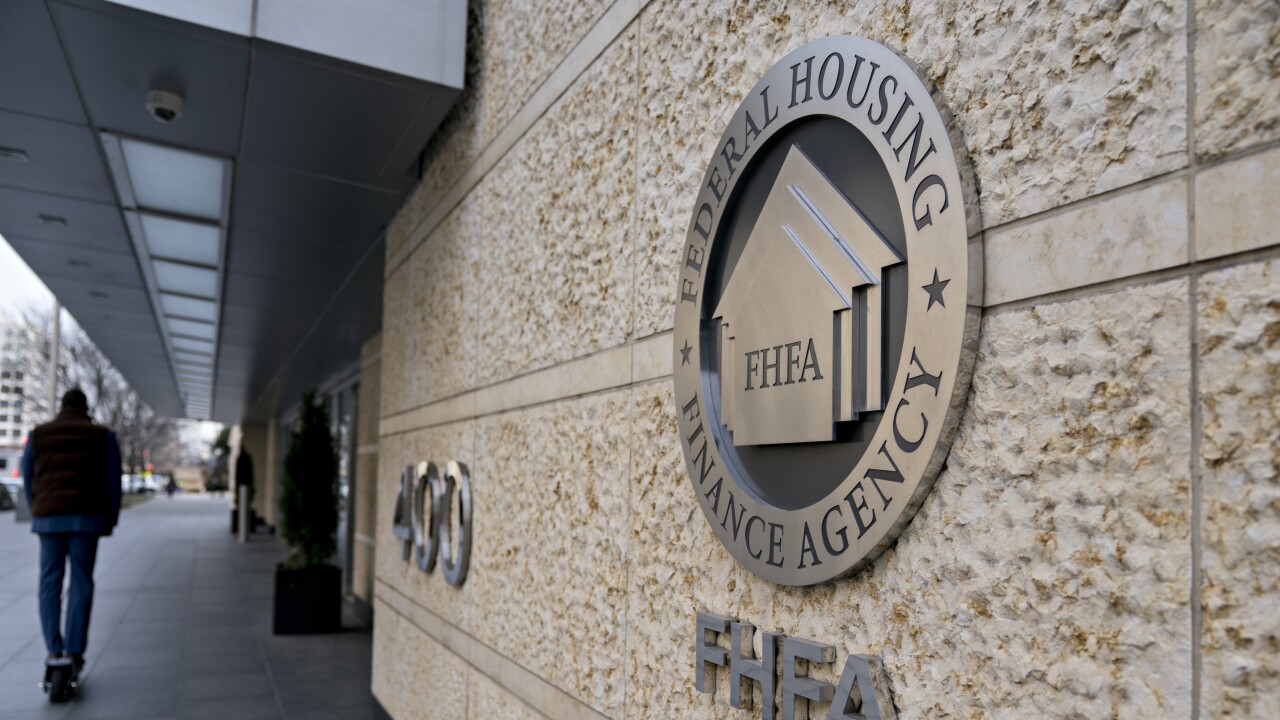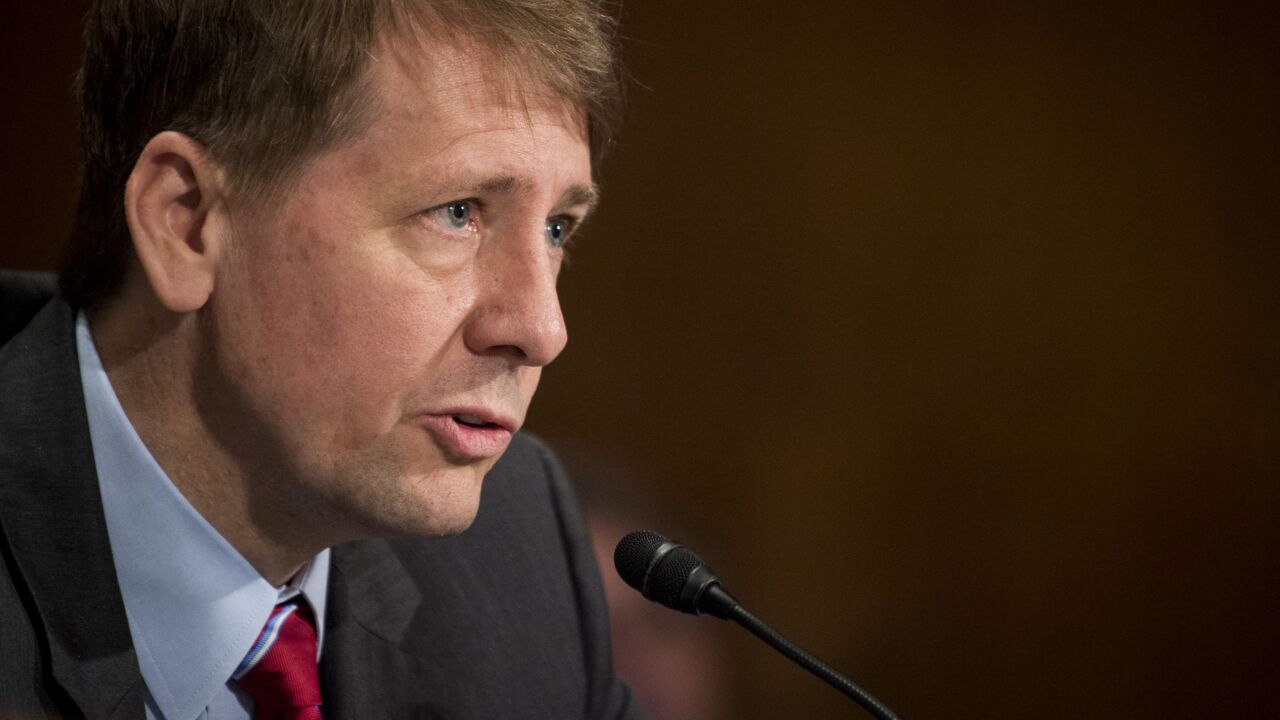-
Treasury Secretary Steven Mnuchin reiterated Thursday that he wants U.S. financial markets to remain open even as the coronavirus fuels wild volatility, while adding that he's focused on helping mortgage firms expected to be hit hard by the pandemic’s spreading economic pain.
March 27 -
JPMorgan Chase, Wells Fargo, Citigroup and U.S. Bancorp, along with 200 state-chartered banks and credit unions, have agreed to let borrowers skip payments for 90 days if their finances have been upended by the pandemic.
March 25 -
The $2 trillion deal passed by the Senate late Wednesday would aim to put banks and consumers alike on stronger financial footing as they weather the coronavirus pandemic.
March 25 -
The rush to unload mortgage-backed securities signals that a credit meltdown that began with corporate bonds is spreading to other corners of the market.
March 23 -
New York Gov. Andrew Cuomo promised a 90-day moratorium on mortgage payments for financially strapped New Yorkers because of the coronavirus.
March 20 -
Mark Calabria said Fannie Mae and Freddie Mac are currently equipped to handle elevated delinquencies, but they might need congressional or Federal Reserve help if fallout from the coronavirus persists.
March 19 -
FHFA Director Mark Calabria said the health crisis will complicate the release of a proposal establishing new capital requirements for Fannie Mae and Freddie Mac.
March 18 -
The temporary foreclosure moratorium on loans backed by HUD, Fannie Mae and Freddie Mac comes after lawmakers and housing advocates had pushed for steps to avoid consumers getting booted from their homes.
March 18 -
The Trump administration is considering a plan to allow homeowners whose income was cut by the coronavirus to delay mortgage payments. Still to be decided is a mechanism for borrowers to catch up.
March 17 -
The Federal Open Market Committee lowered the fed funds rate target to between zero and ¼% in an emergency meeting on Sunday, but while analysts say the move was needed, they feel it will take more to offset the effects of COVID-19.
March 16 -
A national moratorium would be costly to lenders and servicers, but proponents say it's needed to help cushion the economic blow of the pandemic.
March 15 -
The actions include cutting the federal funds rate to between 0% and 0.25% and other steps to ease economic stress from the spread of the coronavirus.
March 15 -
The central bank has been under increasing pressure to act as investors have been losing faith in the Trump administration's efforts to contain the economic fallout.
March 12 -
Financial executives who visited the White House pledged to help small businesses and consumers get through any economic damage as the virus continues to spread. They also encouraged the government to support fiscal stimulus policies.
March 11 -
Fannie Mae and Freddie Mac coming out of conservatorship and transitioning into public utilities would be the ideal for small mortgage lenders, according to trade-organization representative Robert Zimmer.
March 10 -
Leonard Chanin, a senior official at the Federal Deposit Insurance Corp., has been tapped to serve on a part-time basis as the No. 2 official at the Consumer Financial Protection Bureau, according to a news report.
March 4 -
The Federal Open Market Committee cut the fed funds rate target 50 basis points to a range between 1% and 1.25%, it announced Tuesday.
March 3 -
An effort by the Federal Housing Finance Agency to examine membership rules for the Federal Home Loan Bank System is reigniting an argument over whether to allow more nonbanks in or impose tougher barriers.
March 1 -
The Federal Reserve is monitoring the COVID-19 issue and its economic effects, according to a release from the central bank, attributed to Chairman Jerome Powell, released Friday.
February 28 -
The release of Richard Cordray's retrospective of his tenure will come one day before the Supreme Court hears a pivotal case about the leadership structure of the agency.
February 27






![“We are delaying the opening of ... [the] comment period until we have some certainty on what the current overall situation is,” said FHFA Director Mark Calabria.](https://arizent.brightspotcdn.com/dims4/default/339407b/2147483647/strip/true/crop/4182x2352+0+0/resize/1280x720!/quality/90/?url=https%3A%2F%2Fsource-media-brightspot.s3.us-east-1.amazonaws.com%2F24%2F4f%2F09d186a142899167373b7d4166b7%2Fcalabria-mark-bl-031820.jpg)












